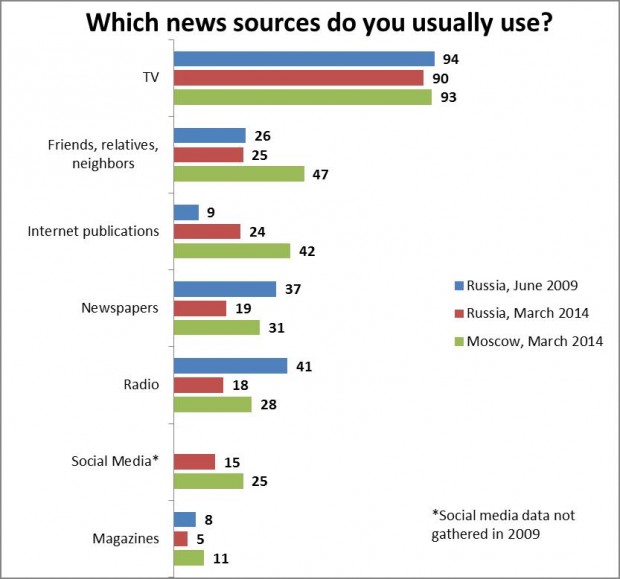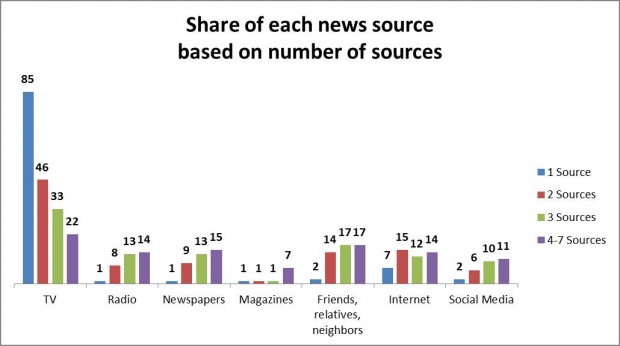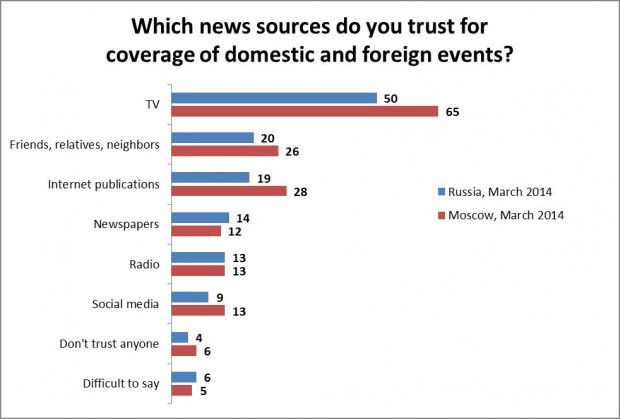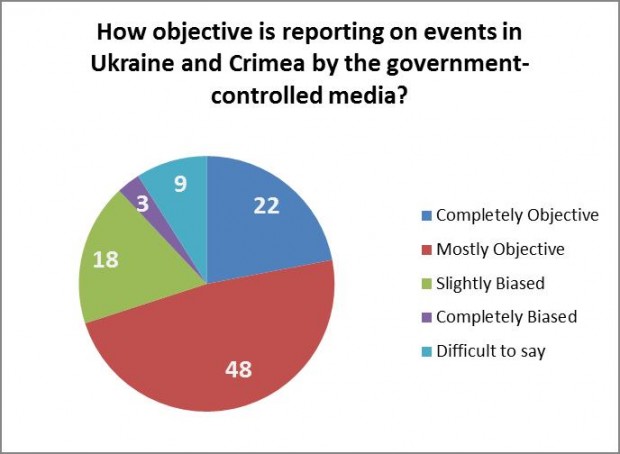The Russian government has depended heavily on the state media to mobilize necessary domestic support in the wake of its seizure of the Crimean peninsula earlier this year. With the number of independent media sources in Russia shrinking and the state-owned broadcasting networks expanding their reach, there are few voices of dissent. These factors create the perfect opportunity for the Putin regime to influence editorial decisions in order to achieve its policy goals.
The state-owned media has become a key tool for exaggeration and misinformation. Claims that Ukrainian refugees were pouring into Russia were illustrated by images proven to be of the Poland-Ukraine border. Ukrainian protesters and the interim government were described as fascists and anti-Russian to play on viewers’ emotions. The Putin regime built up its nationalistic base by coming to the defense of ethnic Russians against what it presented as an overreaching West. Charismatic TV hosts such as Dmitry Kiselev take on these topics and passionately applaud Putin’s actions. Journalists are forced to practice self-censorship or face harassment and lose their jobs.
Russian news networks have a solid consumer base with 90 percent of Russians turning to TV for their news, according to a Levada Center survey, The Russian Media Landscape: Television, Press, and the Internet. The Internet, the primary outlet for independent news sources in Russia, has yet to establish itself there as a popular news outlet, with only 24 percent of Russians using it for access to news. This gives the state-controlled media, which dominate the TV sector, a great deal of power in setting the agenda. The Russian government owns or funds all five of the major television news networks, and few news sources address sensitive topics such as corruption. News stations with more objective content have been shut down, such as RIA Novosti, or forced off the air, such as Dozhd. According to the Levada Center, the lack of independent media sources is a major factor contributing to the continued support of the current political order.
More concerning is that 51 percent of Russians only consult one source for their news, and that source is usually state-controlled TV. Television is effective as a propaganda tool because it changes opinions on frequently-covered issues, the Levada Center reported. As viewers watch TV over time, there is a marked change in opinion about popular themes. Conversely, independent news organizations are only able to bring about changes in opinion about an event if discussions spread widely online and offline.
The level of trust in television is significantly higher than other news sources at 50 percent, and 65 percent of Muscovites trust television news coverage. The majority of Russians consider the state-owned media’s coverage of events in Ukraine and Crimea to be at least mostly objective. With such a strong consumer base established, it is unlikely that drastic changes will occur in the media environment in the near future. There seems to be little incentive for Russians to seek out unbiased news sources.
The majority of Russians are not being reached by independent sources online, and most don’t see the need to search for them. The Putin regime is free to set the agenda through its drastically larger audience on state-controlled networks. The government’s control on information is a key tool for achieving its goals and rallying domestic approval.
All graphs are based on graphs and data charts from the Levada Center’s report, Российский медиа-ландшафт: телевидение, пресса, Интернет.






Comments (0)